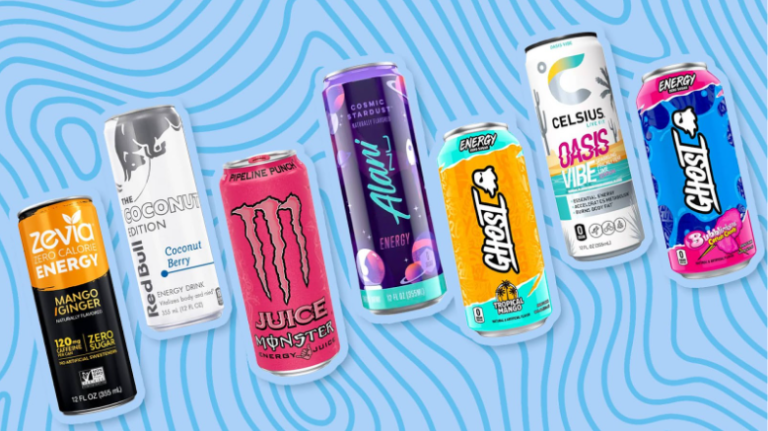How Caffeine Timing Impacts Workouts

Caffeine is one of the most widely used performance enhancers in the world, and for good reason. From early morning lifters to late-night runners, athletes have long relied on that pre-workout coffee or energy drink to sharpen focus, increase output, and delay fatigue.
But here’s the catch: it’s not just about taking caffeine, it’s about when you take it.
At APEX PWR, we help athletes of all levels optimize their nutrition, and that includes understanding the timing of caffeine intake for better energy, training, and recovery.
☕ What Caffeine Does in the Body
Caffeine works primarily by blocking adenosine, a brain chemical that makes you feel tired. It also:
- Increases dopamine (motivation & focus)
- Enhances calcium release in muscles (greater contractile force)
- Stimulates the central nervous system (alertness, reaction time)
- Increases fat oxidation and spares glycogen during endurance exercise
Translation: caffeine can help you feel more alert, perform harder, and delay fatigue.
⏱ Timing Matters: When to Take It for Best Results
⏳ Ideal Timing: 30–60 Minutes Before Exercise
Caffeine peaks in the bloodstream about 30–75 minutes after consumption. This is your sweet spot for performance.
Before strength training?
Take caffeine 30–45 minutes before heavy lifts for enhanced focus and power output.
Before endurance work?
Take caffeine 45–60 minutes prior to a long run, ride, or interval workout for delayed fatigue and mental clarity.
According to research cited by the International Society of Sports Nutrition (ISSN), “Caffeine ingested ~60 minutes before exercise improves performance in trained and untrained individuals, particularly in endurance and high-intensity intervals.”
📉 Too Early, Too Late, or Too Much?
❌ Taking It Too Early
If you drink your pre-workout coffee 90+ minutes before training, your peak effect may wear off during the session, especially during longer workouts or races.
❌ Taking It Too Late
If you train in the evening, caffeine too close to bedtime can disrupt sleep, which hurts recovery and performance the next day.
Tip: Avoid caffeine within 6–8 hours of planned sleep. Afternoon lifters may want to use lower doses or skip it entirely.
❌ Overdosing
More is not always better. Too much caffeine can lead to:
- Jitters
- Anxiety
- Elevated heart rate
- Energy crashes
- GI distress during endurance sessions
Safe dose: 3–6 mg/kg of body weight (e.g., ~200–400mg for most adults)
🏋️ Caffeine Timing by Training Type
💪 Strength & Power Training
- Take 30–45 min before lifting
- Enhances power, bar speed, and neuromuscular activation
- Avoid high doses—too much can reduce fine motor control
🏃 Endurance Training
- Take 45–60 min before long runs or rides
- Improves pacing, focus, and fat oxidation
- Consider micro-dosing during long events (e.g., 1–2 gels with caffeine at mile 10+)
🧠 Skill or Focus-Based Training
- A small dose (50–100mg) can enhance attention and reduce perceived effort
- Avoid overstimulation especially if you’re doing rehab or technique drills
🧬 Personal Factors That Affect Timing
- Caffeine Sensitivity: Some people metabolize caffeine slower (CYP1A2 gene variation). If caffeine makes you anxious or restless, start with a lower dose and avoid late-day use.
- Training Time: Early-morning lifters may need a bigger boost to overcome sleep inertia. Evening lifters should use caffeine cautiously.
- Fasted vs. Fed State: Caffeine may hit harder on an empty stomach, but can also cause GI issues. If sensitive, eat a light snack with your caffeine.
🔁 Habitual Use: Does It Still Work?
If you drink 3+ cups of coffee a day, you might wonder: Does caffeine still work pre-workout?
Research shows tolerance does develop, but caffeine still provides performance benefits just slightly less dramatic.
You can cycle off caffeine for 1–2 weeks every few months to “reset” your sensitivity, or simply adjust your pre-workout dose to be more intentional.
🥤 Common Caffeine Sources & Timing Tips
Source | Caffeine (mg) | Notes |
Black Coffee (8 oz) | 80–100 mg | Fast, affordable, effective |
Espresso (1 shot) | ~65–75 mg | Great pre-lift boost |
Pre-workout Supplement | 150–300+ mg | Check for added stimulants |
Energy Drink | 100–300 mg | Watch for sugar content |
Caffeinated Gel | 20–50 mg | Great for mid-race fuel |
Green Tea | ~30–50 mg | Milder option with L-theanine |
✅ Want Help Optimizing Your Fuel Strategy?
Whether you’re training for your first 5K or chasing a deadlift PR, we help you align nutrition, supplements, and timing for peak performance.
🔗 Explore our offerings:
- 🥗 The Power of Nutrition Coaching – personalize your caffeine, carb, and protein timing
- 💪 Performance-Based Training – blend lifting, running, and smart fueling for sustainable results
🏁 Final Thoughts
Caffeine is powerful, but only when used with precision.
Nail the timing, dose, and delivery method, and you’ll feel sharper, stronger, and more resilient in every training session.
Previous Blogs
Kevin Le’s Ironman California 2025 Story
Kevin Le’s Ironman California 2025 Story By Dr. Kevin Le, DPT | Physical Therapist & Endurance Coach at APEX PWR, Tigard, OR Hey everyone! It’s Kevin, your resident endurance athlete and physical therapist at APEX PWR. I just got back from racing Ironman California in Sacramento on Sunday, October 19. I haven’t taken
Finding Balance After Baby: How Structure and Habits Support Postpartum Wellness
Finding Balance After Baby- How Structure and Habits Support Postpartum Wellness By APEX Nutritionist, Jennie Carolan We’re so excited to introduce our newest little addition, Oslo, to the APEX family! He arrived on October 15th, and I truly believe that APEX’s incredible strength programming and my focus on nutrition played a huge role in such
Strong Legs, Strong Mind: How Lower-Body Strength Protects Long-Term Health
Strong Legs, Strong Mind: How Lower-Body Strength Protects Long-Term Health At APEX Performance Wellness & Rehab, we often say strength is more than muscle, it’s medicine. New research continues to reinforce that statement, showing that leg strength and muscle size are key predictors of brain health, metabolic function, and even lifespan. From dementia and Parkinson’s